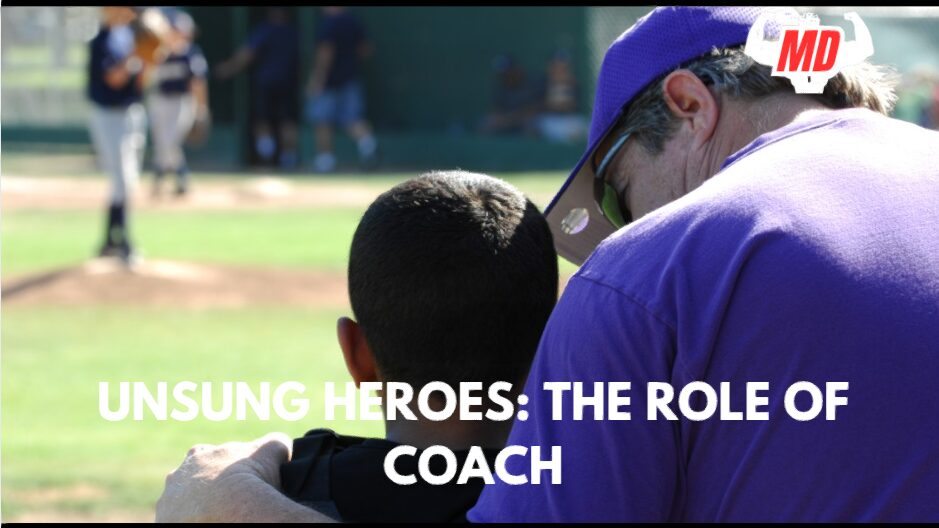In the world of sports, athletes often stand in the limelight, celebrated for their skills, victories, and achievements. Yet, behind every successful athlete, there’s often an unsung hero—the coach. Coaches not only shape their athletes’ physical and technical abilities but also play an instrumental role in their mental resilience, sportsmanship, and development as individuals. Through their knowledge, encouragement, and structured guidance, coaches deeply influence an athlete’s journey and ultimate success.
Core Responsibilities of Sports Coaches
A coach’s primary role is to lead and inspire athletes toward their best potential. Leadership goes beyond issuing instructions; it involves setting an example, building trust, and guiding athletes to work through challenges.
As mentors, coaches support skill development, offering personalized advice on technique, strategy, and mental preparedness. This mentorship fosters self-belief in athletes and prepares them to handle high-stakes situations confidently.
Beyond mentorship, a coach’s strategy and tactical planning expertise is vital in competitive sports. Coaches analyze opponents, assess strengths and weaknesses, and devise game plans that leverage their athletes’ abilities while countering those of their competitors. This requires analytical skills and a thorough understanding of the sport and individual athletes.
Building a Positive Team Environment
A coach’s ability to communicate expectations, give constructive feedback, and offer encouragement shapes the team’s dynamics. Clear and open communication helps athletes understand their roles, fosters collaboration and creates a unified team culture.
Team dynamics hinge on trust and cohesion. Coaches play an essential role in managing relationships, fostering inclusivity, and emphasizing sportsmanship, collectively promoting a respectful and supportive environment where athletes can thrive.
Emotional support is also crucial; sports come with highs and lows, and athletes often rely on their coaches to help them manage stress, disappointment, and anxiety. By being empathetic and approachable, coaches help athletes navigate their emotional challenges, fostering a resilient mindset that extends beyond sports.
Enhancing Athlete Performance
Crafting personalized training programs is a fundamental responsibility of coaches. These programs are not one-size-fits-all; they are customized based on each athlete’s strengths, areas for improvement, and overall development goals.
Coaches also set realistic, incremental goals that provide athletes with a sense of progression, maintaining motivation and focusing on continuous improvement.
Mental resilience is as important as physical sports skills, especially in competitive settings. Coaches utilize mental training techniques to help athletes build confidence, maintain focus, and manage pressure. Techniques such as visualization, mindfulness, and positive reinforcement prepare athletes to handle high-pressure moments with composure.

Ethical Standards and Cultural Competence
Coaches are responsible for instilling values such as integrity, respect, and discipline in their athletes. They address sportsmanship issues and ensure that athletes respect rules and conduct themselves honorably on and off the field.
Coaches also play a role in advocating for their athletes’ physical and mental health. They balance the pursuit of excellence with an understanding of athletes’ physical limits, preventing burnout or overtraining while ensuring a focus on long-term health.
The Impact of Inspirational Leadership
Effective coaching goes beyond short-term wins. Coaches focus on long-term athlete development, ensuring athletes gain skills and attributes that prepare them for continued growth in sports and beyond. This involves talent identification, progressive skill development, and a focus on foundational competencies that provide athletes with a strong base for future achievements.
By focusing on the bigger picture, coaches contribute to athletes’ overall well-being, setting them up for success in sports and other areas of life.

Frequently Asked Questions
What qualities make a good sports coach?
A good sports coach demonstrates strong leadership, effective communication, empathy, and a commitment to the long-term development of athletes. They possess knowledge of their sport and can create a positive environment that fosters teamwork, resilience, and ethical conduct.
How do coaches contribute to an athlete’s mental toughness?
Coaches contribute to mental toughness by teaching athletes focus, resilience, and stress management techniques. This includes visualization, positive reinforcement, and coping strategies that help athletes stay composed under pressure.
Why is ethical behavior important in coaching?
Ethical behavior ensures fair play, respect, and integrity in sports. It also protects the well-being of athletes, helping to create an environment where they can develop safely and responsibly.



